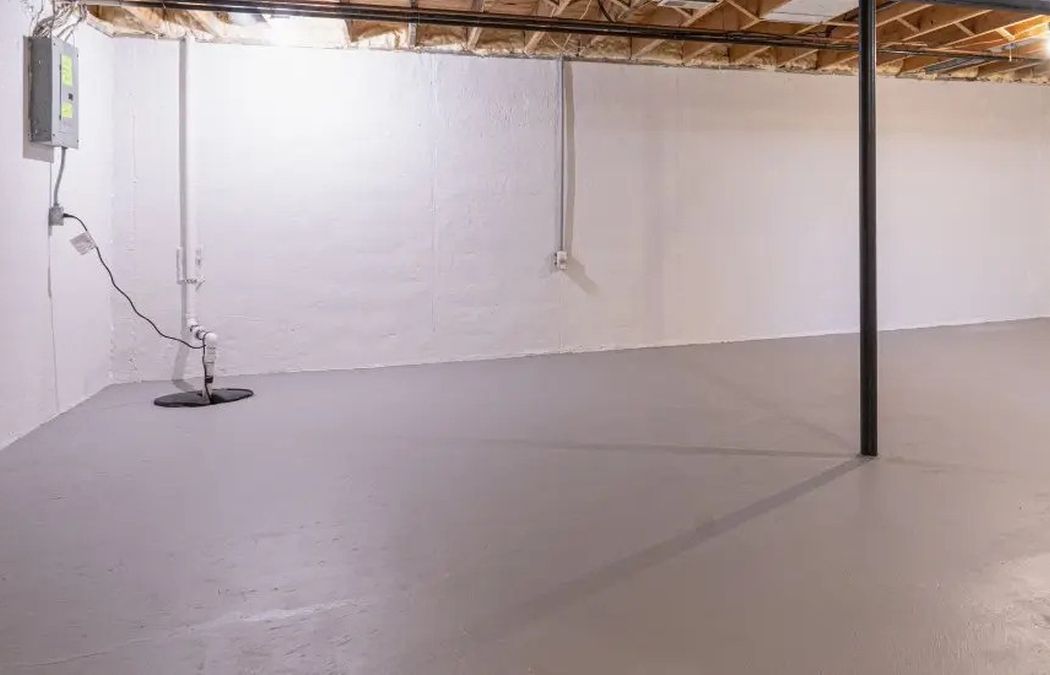Why Is My Home’s Concrete Basement Floor Cracking and Sinking?

If you’re a homeowner in North Georgia, you may have noticed cracks forming in your concrete basement floor or, worse yet, your basement floor sinking. These issues can cause distress and confusion, leading you to question the stability of your home. At Advance Concrete Lifting and Leveling, we specialize in addressing these challenges, helping residents restore their concrete surfaces to a safe and level state.
Let’s explore the unique soil instability factors in North Georgia, the causes of concrete cracking and sinking and how our cutting-edge solutions can restore your basement floor.
Soil Instability Factors Unique to North Georgia
Diverse soil types, including clay, silt and loamy soils, characterize the North Georgia region. One of the primary soil instability issues in this region is expansive clay, which can absorb water and swell, then shrink when it dries out. These shifts lead to soil movement that directly impacts the stability of concrete structures. Plus, the hilly terrain can lead to erosion and uneven settling, exacerbating issues of soil instability.
Rainfall is another significant factor in North Georgia. The region experiences heavy rainfalls, especially during the spring and summer months. This can lead to increased moisture in the soil, causing it to shift and create voids beneath your concrete surfaces. When these voids form, they can no longer support the weight of the concrete, resulting in cracking or sinking.
Causes of Concrete Basement Floor Cracking and Sinking
Several factors contribute to the issues of cracked and sunken concrete floors:
- Water Damage: Poor drainage systems can lead to water pooling around the foundation. This excess moisture softens the ground and can wash away soil, leading to voids.
- Soil Settlement: As the soil underneath settles over time, it can create uneven support for concrete slabs, leading to cracks and subsidence over time.
- Temperature Changes: Seasonal temperature fluctuations can cause concrete to expand and contract. This dynamic can lead to stress and eventually cause cracking in the basement floor.
- Poor Initial Installation: If the concrete was not correctly installed or if the ground was not adequately prepared before pouring the slab, it may be more prone to cracking and sinking.
- Heavy Loads: Excessive weight from appliances, storage or structural changes can put pressure on concrete slabs, causing them to sink if the underlying soil is unable to support them.
The Solution: Polymer Injection for Concrete Repair
At Advance Concrete Lifting and Leveling, our technique of injecting polymer foam into affected slabs effectively addresses these issues. This process involves drilling small holes in the concrete and injecting a specialized foam that fills voids in the soil beneath the slab.
The polymer foam expands, creating a strong and stable support structure for the existing concrete. This innovative method not only lifts the slab back into its original position but also helps prevent future sinking by reinforcing the soil beneath its surface. Additionally, the entire process is minimally intrusive, ensuring your property remains largely undisturbed during repairs.
Why Choose Advance Concrete Lifting and Leveling?
With years of expertise and a team of skilled technicians, we take pride in being the authority in concrete repair in the Atlanta area. Our focus on high-quality results and customer satisfaction has established us as a trusted partner for homeowners facing concrete issues. By choosing our services, you invest in solutions that can extend the life of your concrete surfaces for decades, saving you time and money on future repairs.
FAQs About Basement Floor Cracking and Sinking
What are the signs of a sinking basement floor?
Look for visible cracks, uneven surfaces or doors and windows that do not close properly. Water pooling after rainfall can also be an indicator.
How quickly should I address cracks in my basement floor?
It’s best to address cracks promptly before they worsen. Ignoring them may lead to more significant structural issues and costly repairs.
Can I repair cracks myself?
While small surface cracks can be filled with sealants, significant cracks or sinking should be evaluated professionally to identify underlying causes.
How long does the polymer injection process take?
The polymer injection process is relatively quick, often completed in just a few hours, allowing you to return to normal activities the same day.
Is polymer injection safe for my home?
Yes! Polymer injection is a proven method that is safe, effective and minimally disruptive to your home.
Alpharetta Repair and Level Concrete Basement Floors
Concrete sinking and cracking in your basement is not merely a cosmetic concern; it can pose safety risks and structural challenges. By understanding the unique soil conditions in North Georgia and their contribution to these issues, you can take proactive measures to address them. Trust Advance Concrete Lifting and Leveling for expert solutions that prioritize safety, durability and customer satisfaction. With our innovative techniques and experienced team, your concrete surfaces are in excellent hands, ensuring they remain safe and pleasing for years to come.
Posted on Behalf of Advance Concrete Lifting and Leveling
















